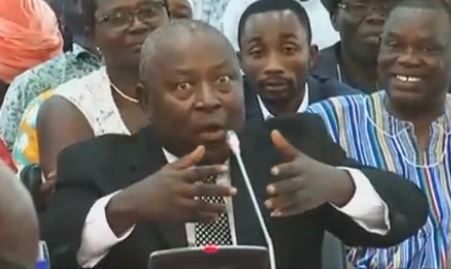
It comes as no surprise to hear that several months after the coming into being of the “Special Prosecutor Office”, it is begging for resources to prosecute its mandate. When the OSP issue became center-stage in national conversation early in 2017, IMANI acknowledged the difficulty and advised that in spite of its positive creation, the OSP alone cannot help stamp out corruption since it usefulness is after the commission of brazen acts of corruption. And that the surest way to reduce or prevent the occurence of grand waste and corruption is for the habit and commitment to start at the Presidency.
IMANI said in February 2017 that, it is evident however from all the legal debate that has ensued since the inauguration of the new President that new laws would be required to put the idea of the Special Prosecutor into practice. After such laws are passed, more time is required to recruit, staff, and resource the personnel in the new entity. Should even the new Prosecutors decide to use the fast-track courts in their pursuit of those who have embezzled or mismanaged public funds, due process and expensive lawyers can drag cases out for months. In short, it is unlikely that the Special Prosecutor shall bear any serious anti-corruption fruits for at least 18 months.
On top of these sobering facts, Ghanaians also have to contend with the limitations of criminal prosecutions as a tool in fighting corruption. Whilst, criminal prosecutions are a great deterrence, they can only happen after the fact, and often the lost money is never recouped. The political costs of a failed prosecution can have a chilling effect on other prosecutions, especially in our situation where investigations are rarely thorough because of institutional defects.
At any rate, the Executive, or to be blunt, the President, does not control the Courts. It is in consideration of all these facts that has led IMANI to the belief that the quickest and most effective way for the new government to stamp its feet and assert its anti-corruption credentials is to start the process at the Presidency, the heart of the government, where the President has near absolute control over outcomes and consequences.
If the President and his government cannot stamp out waste and corruption from his own seat of government then how can he be trusted to be able to do so across the two thousand or so entities more removed from his immediate control? If the President does not show direct leadership in the matter, how can we expect his Finance Minister to be able to pursue his commitment to safeguard some $2 billion of public money (5% of GDP) through an enhanced anti-corruption agenda, using the Minister’s own estimates of the problem?
As we have indicated already, the beauty of starting with the Presidency does not only lie in the level of control the Head of State has over the agencies reporting directly to him, it also lies in the speedwith which his actions can have impact.
IMANI recommended the following actions as very critical for the President to undertake:
A. Immediately take steps to rationalize the agencies placed within the poorly coordinated structure called the Office of Government Machinery (OGM) which the President supervises and reduce the number of entities reporting directly to him to the bare minimum. Many of the mandates can be aligned with other Ministerial mandates and placed in tighter reporting systems within the Ministries. There should be extensive pruning of the 111 ministers and a consolidation of ministries to reduce waste of tax resources .
B. Outline plans and strategies to reverse the practice of overspending and establish key indicators that the public can hold government agencies accountable to. Reasons for any overspending should be clearly explained in audit reports which should be timely and available to the public.
C. Implement an institutional audit to remove redundancies like the Ghana AIDs Commission, whose role can fit cleanly within existing infectious disease programs at the Ministry of Health. The institutional audit should be followed by a financial restructuring with the aim of saving millions of $$. With competitive procurement and a dedicated financial management system across the leaner remnant of the reformed OGM, 40% of the OGM budget in the last financial year can be shaved off.
D. To galvanise the political will for these drastic reforms, radical transparency is required. The government should proceed to publish the contracts awarded in the various units within the Presidency and redact only the sections of national security contracts of proven sensitivity. The darker likes of KelniGVG contract and technically deficient procurement process only embolden critical observers to conclude that the Presidency dances with the rather serious matter of fighting grand corruption and waste. Will we see some renewal of faith?









